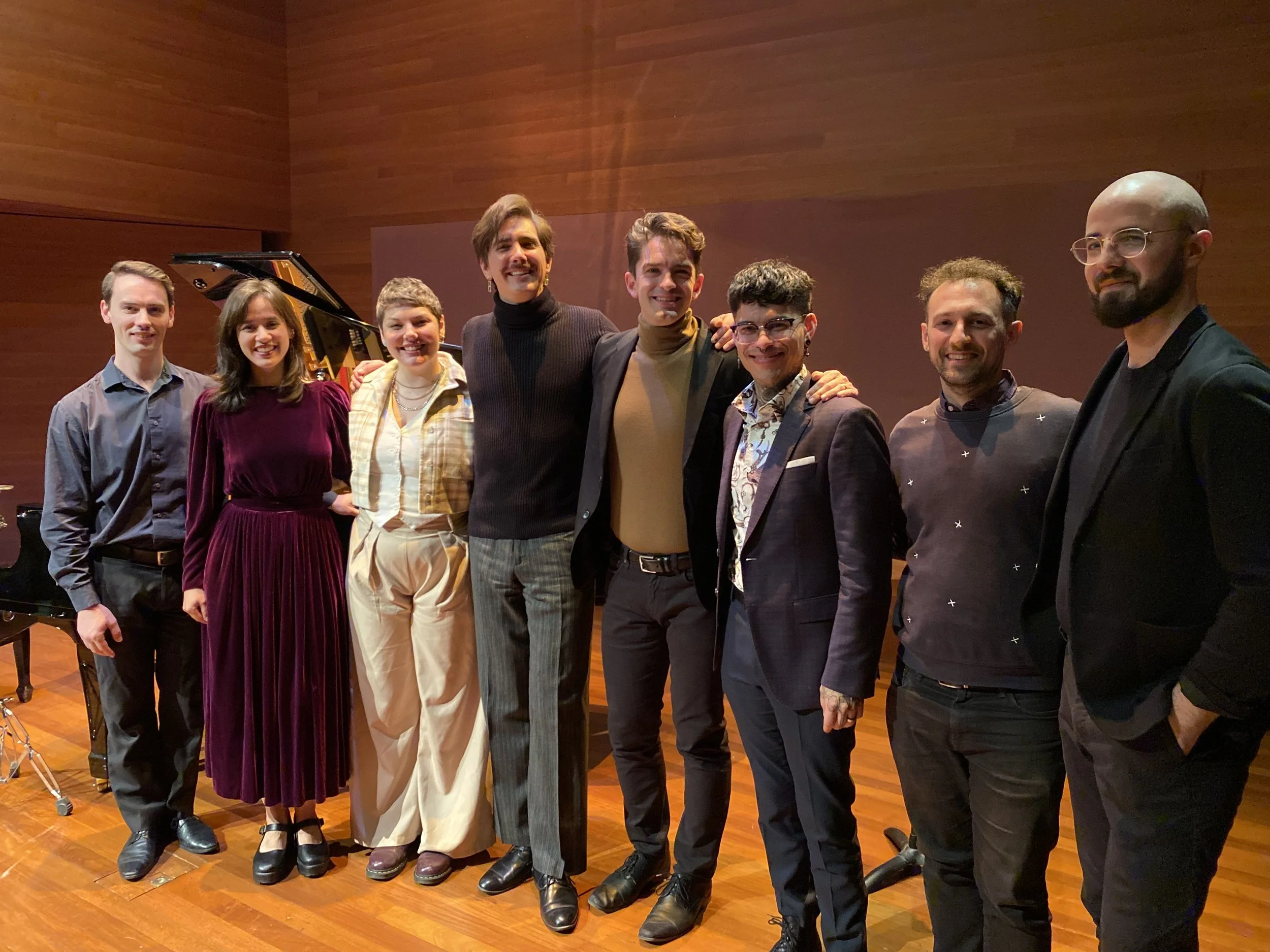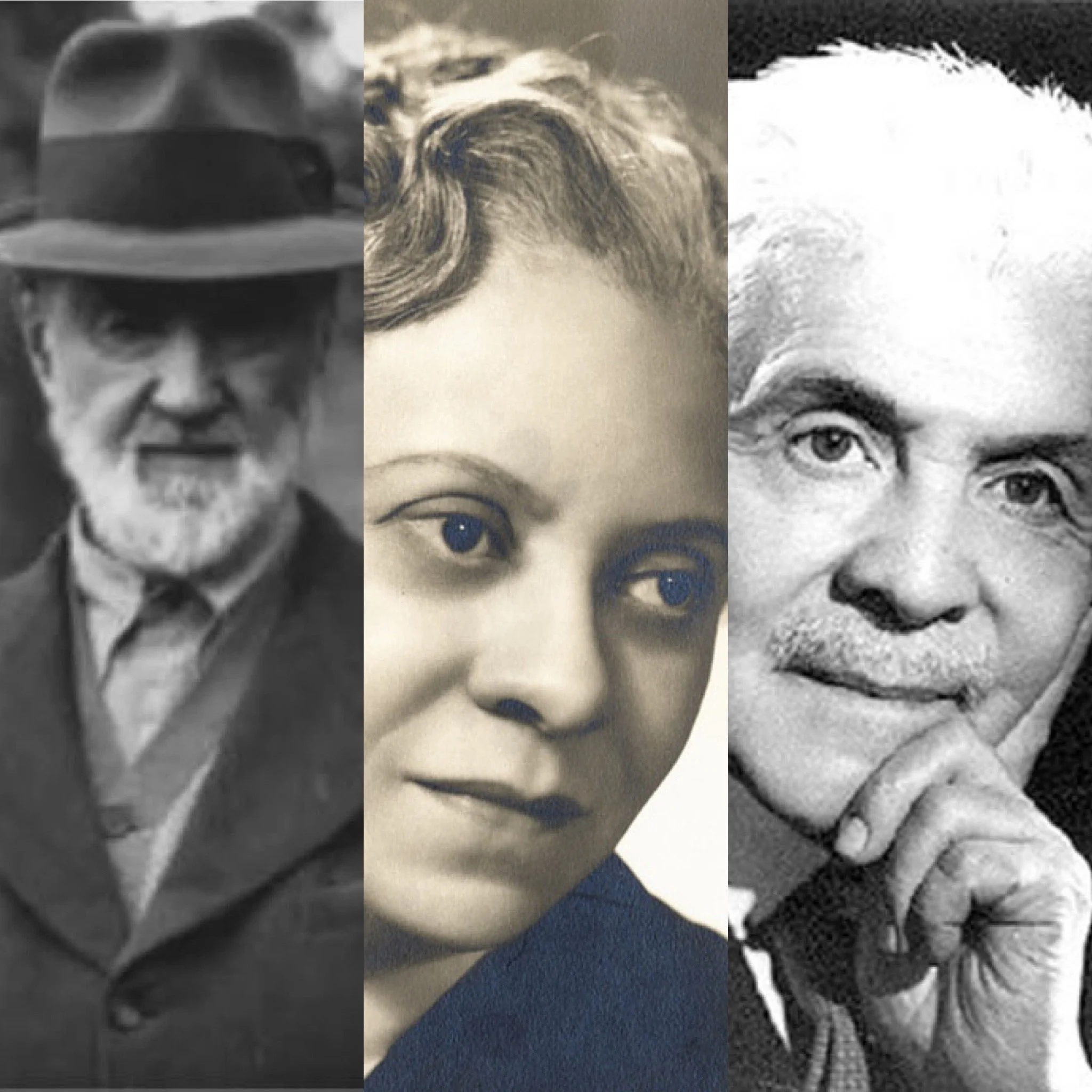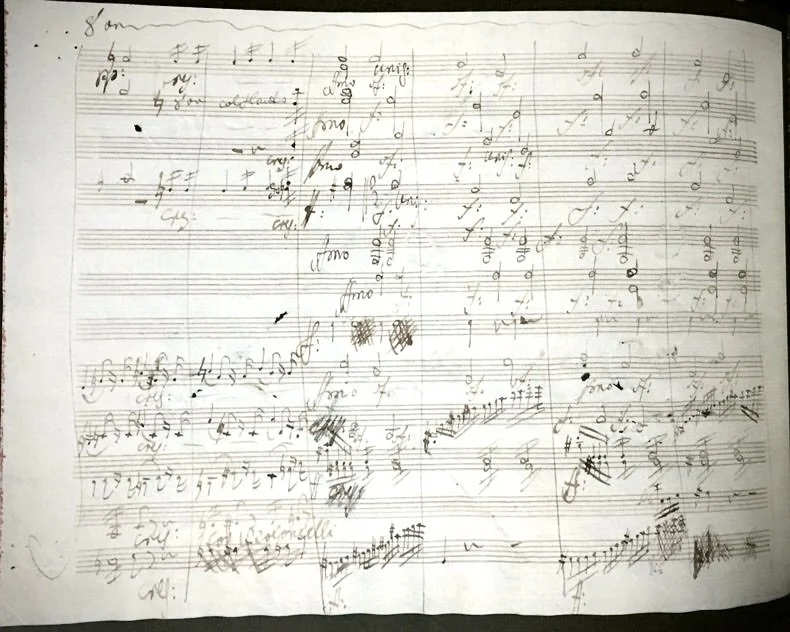An art song recital is the last place remaining for an audience to hear an unamplified singer in an intimate setting; as such, it always has a whiff of the 19th century about it. But NYFOS Next, the venerable New York Festival of Song’s new music series, showed in their recent program “A Space to Make” that the ancient form is alive and very much kicking in the hands of the current generation of practitioners.
REVIEW: Phantasias and Variations - Angela Hewitt Turns Focus To Mozart
Angela Hewitt — esteemed as one of today’s master interpreters of J. S. Bach, having recorded and performed the Baroque master’s complete ouvre for ten fingers to great acclaim in recent years, has embarked on her next chapter, The Mozart Odyssey, a survey of Mozart’s piano concertos around the globe. Hewitt began her latest concert in Kaufman Auditorium at 92NY with Mozart’s Phantasia, beautifully paced and technically graceful, adding her own flare to the written ornaments — as an opera in miniature.
PREVIEW: November's Classical Music in NYC
CadenzaNYC’s curated list of NYC’s classical music highlights for November 2024.
REVIEW: MasterVoices Strikes Up the Band
Someday this inflamed election season will be something to reflect upon, and one of my fondest memories of the period will be the soothing balm applied by MasterVoices’ effervescent concert presentation of Strike Up the Band, the satirical operetta from 1927 with a score by George and Ira Gershwin and an antiwar Marx Brothers-style book by George S. Kaufman.
REVIEW: The Knights Slay Beethoven's Fourth and Assorted Rhapsodies
The centennial of George Gershwin’s Rhapsody in Blue continued into its fourth quarter with The Knights’ latest at Carnegie’s Zankel Hall, featuring a world premiere as part of their multi-season Rhapsody-themed commissioning project. The Brooklyn-based orchestra welcomed pianist Aaron Diehl for a unique take on Gershwin’s familiar piece for piano and orchestra, a new composition for the same combination by Michael Schachter, balanced, in a stroke of programming ingenuity, with Beethoven’s Fourth Symphony.
REVIEW: Daniil Trifonov Waltzes Through Moody Program
Trifonov’s swap of Barber with Rachmaninoff’s Variations on a Theme of Corelli raised the question of what story this unusual program was telling, especially, after experiencing the Sturm und Drang of the curtain-raiser. Pyotr Ilyich Tchaikovsky's Piano Sonata in C-sharp Minor, a posthumously published work, dating from 1865 when the composer was a 25 year old student, was a fascinating concert opener.
REVIEW: The Philadelphia Orchestra's Sublime Mahler's Third
Mahler’s Third, which clocked roughly an hour-and-three-quarters this evening and requires women’s chorus, children’s chorus, alto soloist, and orchestral heft including eight horns, is more seldom programmed than his Second, or Bruckner’s Seventh (a mere hour-and-ten-minutes). But, Nézet-Séguin commands this monumental epic assuredly, not wasting a drop of the legendary Philadelphia institution inherited from legendary maestros such as Stokowski and Ormandy. And Mahler’s Third is as Mahlerian as his symphonies come — a broad canvas on which he depicts and explores “nature,” and the human experience, in the broadest sense.
REVIEW: Gustavo Dudamel and Natalia Lafourcade Build Bridges With L.A. Phil
Carnegie Hall’s 2024-25 season opened with Gustavo Dudamel and the Los Angeles Philharmonic in three concerts that established a jubilant tone for the venue’s new festival, Nuestros sonidos (“Our Sounds”), which celebrates the impact of Latin-American culture on the United States.
PREVIEW: October's Classical Music in NYC
CadenzaNYC's October 2024 curated list of NYC's classical music highlights.
REVIEW: National Sawdust's "Silent Light"
Silent Light, the new, immersive opera by composer Paola Prestini and librettist Royce Vavrek, based upon the 2007 Dutch film Stellet Licht, transports us to a Northern Mexican Mennonite community in this captivating parable of love, duty, temptation, and the role of women in society.
REVIEW: Parlando's Powerful Music of Night
The nocturne and the enduring theme of night music was explored in the latest Merkin Hall performance by Parlando. Conductor Ian Niederhoffer, who founded this intrepid and promising chamber orchestra in 2019, conceived and led a packed house through an insightful and captivating rumination on the musical night-scape.
REVIEW: New York Philharmonic Makes It About the Music
Eyes and ears are focused on the New York Philharmonic this week. A new collective bargaining agreement with the American Federation of Musicians has been reached, promising significant pay increases and important cultural changes. Future music director Gustavo Dudamel doesn’t take the helm until 2026, and role of CEO is currently in limbo.
REVIEW: American Classical Orchestra Celebrates 40 Years
The American Classical Orchestra opened their 40th season on a joyful note. Under the baton of Artistic Director Thomas Crawford, Wednesday’s concert at Alice Tully Hall celebrated the audience as much as the venerable period-instrument ensemble itself. Serving up one of classical music’s great crowd-pleasers, Ludwig van Beethoven’s Seventh Symphony, Crawford combined a light, breezy touch with heartfelt investment in the music of the eighteenth and nineteenth centuries.
REVIEW: Imagining a World Without Humans
mɔɹnɪŋ [morning//mourning] was presented here in an hour-long version ... The piece takes as its premise that humans have all suddenly disappeared, and explores what might happen to the planet afterwards, taking its cue from Alan Weisman's 2007 book "The World Without Us." It's billed as an opera, but at least in this incarnation is more of a semi-staged oratorio; while the five excellent performers (Gelsey Bell, Aviva Jaye, Brian McCorkle, Mia Pak, and Paul Pinto) have character names listed in the program, they are never used, nor do they interact as ongoing characters.
PREVIEW: September in NYC's Classical Music Highlights
CadenzaNYC's Preview of NYC's Classical Music Highlights September 2024. Listings include Lincoln Center, New York Philharmonic, Carnegie Hall, Met Opera, and other leading venues in Manhattan, Brooklyn, and more.
REVIEW: The Sylvan Winds Among Friends
The Sylvan Winds concluded their forty-fifth season as one of New York’s premiere woodwind quintets with a convivial, festive concert at Merkin Concert Hall. Joined by a mixture of friends and former ensemble members, the evening featured fresh new works, as well as beloved classics, and expanded into veritable wind ensemble works with thirteen players. A “baker’s duodecet?”
REVIEW: Evgeny Kissin Connects and Communicates at Carnegie Hall
The salon-like ambiance was ideal for Beethoven at his most Schubertian: Piano Sonata No. 27 in E Minor, Op. 90, a two-movement piece from the composer’s “late-middle” (or some could argue, “early-late”) period. Far from the bombast of the Appasionata, the first movement of Op. 90, “Lively, with feeling and expression throughout,” finds the composer turning inward, examining — through an expansive sense of melody that points the way not only for Schubert, but Romantic composers in general — the dichotomies of existence, the positive and negative implications of each musical germ. And by the second movement, a lilting rondo “To be played no too fast and very songfully,” it was clear that melody — not only Kissin’s plush, versatile voicing in the keys, but his free flowing eloquence in sculpting and shaping phrases — was the star of this show.
REVIEW: "An American Soldier" Documents an American Tragedy
AIt was a difficult opera to watch. As Danny Chen, Brian Vu’s powerful lyric tenor is as steely as it is plush, and he delivered a brave, stoic performance that haunted the courtroom proceedings, shared lighter scenes with hints of romance with the earnest and clear mezzo-soprano Hannah Cho, and endured unconscionable, racially-motivated violence.
REVIEW: The Knights Meld Musical Styles at Zankel Hall
This was the third and final concert of The Knights’ residency at Zankel Hall this year, and Heirloom, of which the orchestra was a co-commissioner, was receiving its pandemic-delayed New York premiere. Heirlooms is a three-movement work on themes of intergenerational inheritance, with one movement based on the entangling of Gabriel Kahane’s parents’ musical lives and his own, one on his grandmother’s post-war feelings about German music, and the third on the unknowable question of what his children will inherit from him.




















